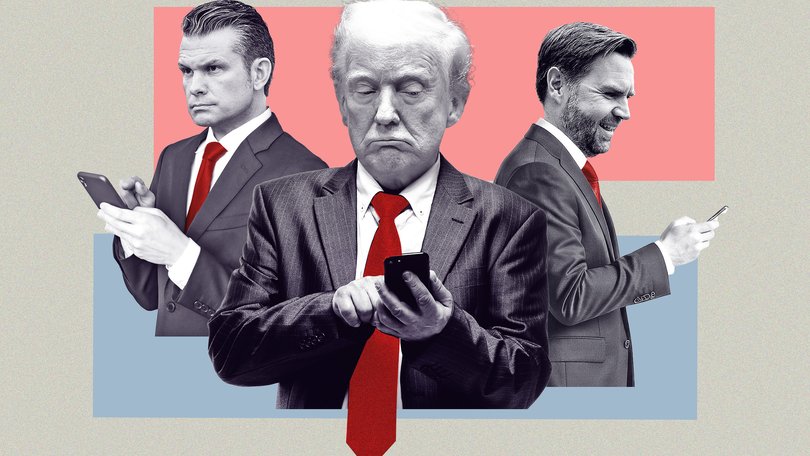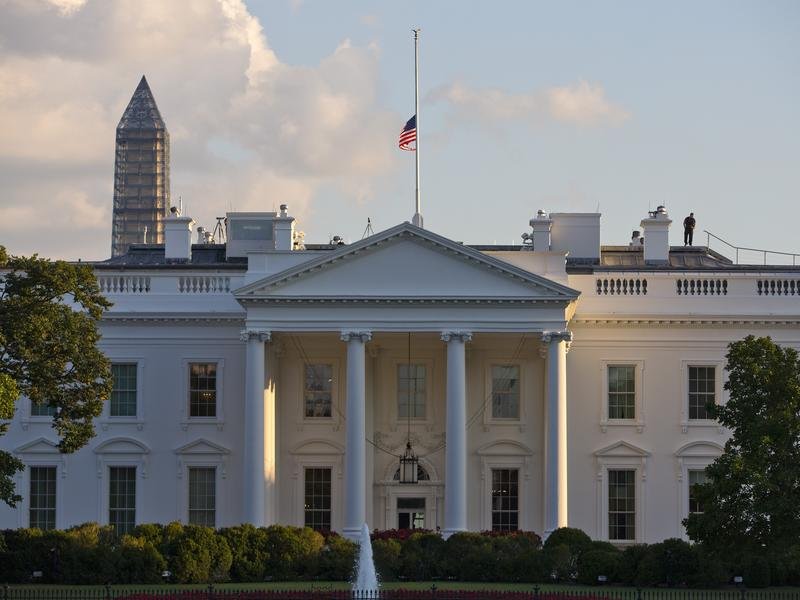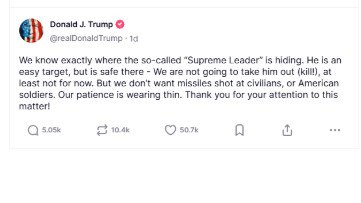AARON PATRICK: Is Donald Trump oversharing or teaching the world how the US government works?
AARON PATRICK: Whether you agree or disagree with bombing Iran, at least US President Donald Trump helped the world follow the story.

Donald Trump assembled journalists to the White House lawn on Wednesday to witness the erection of two flag poles. When a reporter asked about his “mindset” on what might be the most important decision of his second presidency, whether to bomb Iran, Mr Trump ridiculed the questioner.
“You don’t seriously think I am going to answer that question?” he said. “Will you strike the Iranian nuclear component and what time? Will you please inform us so we can be there and watch? You don’t even know that I’m going to do it. Nobody knows what I’m going to do.”
Mr Trump’s refusal to share his views on the war was unusual: for better or worse, Mr Trump’s leads what may be the most communicative presidential administration in US history.
Sign up to The Nightly's newsletters.
Get the first look at the digital newspaper, curated daily stories and breaking headlines delivered to your inbox.
By continuing you agree to our Terms and Privacy Policy.“We’ve never seen a president as accessible to the media as Trump,” says Bruce Wolpe, a former Democrat political adviser who published an anti-Trump book last year.
Trump is just in another league. I hate him but it’s compelling.
Shaping opinion
Most political leaders share information to influence public opinion and events. From sometimes-hourly posts on his social media website to daily press conferences to answering journalists’ calls before breakfast, Mr Trump has taken the practice to an extreme.
As a result, the world knows more about the day-to-day conduct of American foreign policy that perhaps ever before.
On Wednesday, after Mr Trump dismissed the question about Iran, he shared some sensitive information to the same group of journalists, and anyone watching on TV: the day before, Russian President Vladimir Putin offered to act as a go-between in negotiations between the US and Iran.
“They want to negotiate,” he said. “And I said to people: ‘Why didn’t you negotiate with me two weeks ago, you would have had a country?’”
About six hours later, important news about Mr Trump’s position emerged. The Wall Street Journal reported, in what looked like an authorised leak of information, the president approved attack plans against Iran on Tuesday afternoon or evening, and was waiting to see if the Islamic regime would shut down its nuclear program before issuing the order.
Earlier in the week, when he left the G7 meeting in Canada early, Mr Trump teased people by declaring he was not returning to Washington to negotiate a cease fire. “Much bigger than that,” he said. “Stay tuned!”
The White House even told reporters what time he would hold a meeting in the Situation Room, a White House conference room used to discuss military action.

Communicating in caps
The world also knows what Mr Trump has asked of Iran, because he posted the words, without context, “UNCONDITIONAL SURRENDER!” on his Truth Social account. He also disclosed what looks like classified information. “We know exactly where the so-called “Supreme Leader” is hiding.” American would not “take him out (kill!), at least for now,” the president added.
Even Cold War warrior Ronald Reagan, America’s president from 1981 to 1989, does not seem to have publicly mused about assassinating a foreign counterpart.
Mr Trump’s ailing predecessor, Joe Biden, was so insulated from the world by his inner circle of advisers even cabinet secretaries (ministers in Australia) struggled to see him in person, let alone journalists, according to recently published book Original Sin, President Biden’s Decline, Its Cover-up, And His Disastrous Choice To Run Again.
President Barack Obama, in office from 2009 to 2017, so aggressively pursued leaks that opponents accused him of waging war against a free press.
Mr Trump is not the only member of his administration into sharing. Advisers are frequently quoted, on and off the record. Defence secretary Pete Hegseth revealed on June 1 he had asked Australian Defence Minister Richard Marles to increase defence spending 75 per cent.
This week JD Vance posted a blunt, 400-word message on X in response to what he said was “a lot of crazy stuff on social media” about America’s goals in Iran.
“The president has made clear that Iran cannot have uranium enrichment,” the Vice-President said. “And he said repeatedly that this would happen one of two ways--the easy way or the “other” way.”

Different at home
This communication style is very different to Australia. Prime Minister Anthony Albanese, Liberal leader Sussan Ley and other senior politicians are usually guarded in their public comments, and rarely or never disclose sensitive policy deliberations.
Ministers sometimes give information to journalists off the record, which means they cannot be identified as a source. In general, though, the Government’s control over information makes it harder for the media to explain its inner workings, and protects ministers from pressure and criticism as they debate policy internally.
While Mr Trump’s style is great for the media outlets — the New York Times published 1095 articles mentioning the president over the past month, or 35 a day — some supporters worry it undermines the prestige of his office.
“I object that he gives far too much of himself away to the rest of the world, including America’s rivals and enemies, by living his emotional life out loud on social media,” a correspondent for the conservative National Review, Jeffrey Blehar, wrote before the Israel-Iran war began last week.
As if to vindicate the writer, Mr Trump on Wednesday boasted that: “We now have complete and total control of the skies over Iran.”
The US Government’s official position is that Israel is attacking Iran independently of the US, which is a bystander.
By using the plural pronoun, Mr Trump seemed to confirm some experts’ suspicions that the war is a joint enterprise.
Whether you agree or disagree with bombing Iran, at least the president helped the world follow the story.

